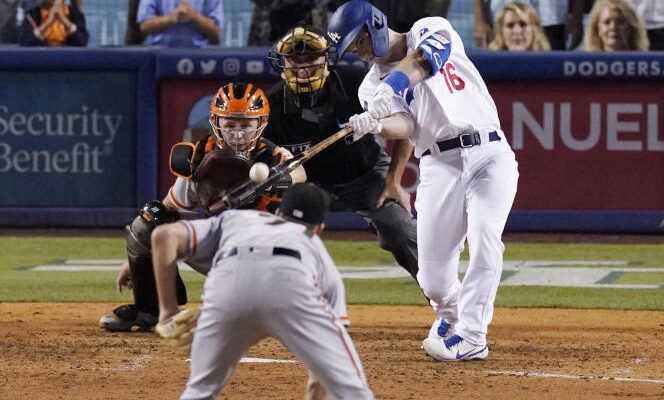Baseball inspires writers, whether they come from the United States or Cuba. Passing through Japan, where this sport is very popular, which has prompted it to be put back on the Olympic Games program this year in Tokyo. Teacher in Quebec literature at the University of Quebec in Montreal (Canada), Michel Nareau has devoted a book to this question, Double game. Baseball and American literature (editions of the Quartanier, 2012).
Why is baseball suitable for literature?
The goal of the game is to make a journey, to take place in the opposing territory to come back home, more lively, stronger. Which allocates a point. By its agonistic structure, it is therefore a journey that is told, a story of transformation. It is a sport marked by strong individual confrontations in a team sport, between the pitcher and the batter in particular.
Baseball is also a sport of jerky, constantly interrupted action. The ball is put into play by the pitcher, it will be hit or not. There is a grace in this alternation between the anticipation, the suspense of the throw and the explosion of movements that a hit ball causes.
Baseball is a speech. The frequent stoppages of this sport oblige to tell a story, to invest expectations with meaning, to create stories from its many silences. They say baseball is only boring for those who have no friends to share a summer chat with in the sun.
How is baseball portrayed in the fiction books where the sport appears?
Staging baseball in novels is as much about emphasizing individual achievements – as in the novel The Celebrant, Eric Rolfe Greenberg – than on those of a team, even when their exploits are lousy – as in The Great American Novel, by Philip Roth. It is also out of the fame of the players to dwell on the memory of the game, especially that of childhood. I think of the beautiful novel Beyond the world by Don DeLillo, who follows a collector’s bullet passed from hand to hand throughout the Cold War.
What other sports, in America or elsewhere, have provided such literary material?
American football is such a warlike metaphor that few good works transform the sport. Boxing, with its intensity, with its straightforward confrontations, has given rise to excellent novels. The relationship to origins, social classes, cultural groups is always present in this sport. The writers have counted on this element, which is also found in baseball.
Your thesis is concerned with the literary functions of baseball as a “Continental pastime”, leisure of the Pan-American continent. Is there a difference between the way of telling this sport in Cuba or in the United States?
In my thesis, I wanted to show that even if baseball is often perceived as a national sport, for example in Cuba, the Dominican Republic, the United States, it was treated by novelists in such a way as to bring out components that were found throughout the Americas. There is a tension between the home (the house) and the border, between the known and the unknown. It is a component linked to the colonial history of the Americas, writers shift it and recompose it in their novels, often to bring out a critical look.
There is also the desire to create a long memory of baseball, to associate it with the past, both individual and collective, to use it as a point of reference. Philip Roth, Paul Auster and Don DeLillo, New York novelists, create memories to build this duration. Leonardo Padura Fuentes, in Cuba, also builds a very nostalgic vision of baseball in the streets of Havana. In both countries, this memory obtained by baseball challenges the official history and its discourses which marginalize specific groups in society, notably homosexuals in Padura.
In Japan, Haruki Murakami has often expressed his taste for baseball. Does the country have a body of literary texts on this sport?
I know little about Japanese literature, but I do know that manga uses baseball a lot, and that it is a visual element that is frequently used in these graphic works. As for Murakami, I had read his story about running (Self-portrait of the author as a long-distance runner, 2009), where allusions to baseball are numerous but geared towards training. Murakami places baseball and running in an aesthetic logic of control and repetitions that lead to the story of the self.
